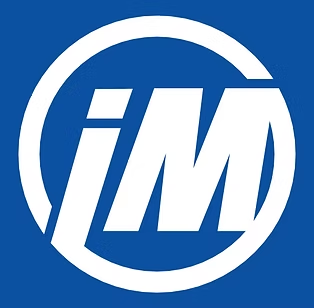
HeadStarter
Headstarter is a decentralized fundraising platform and launchpad built exclusively for the Hedera network. Its primary purpose is to accelerate the growth of the Hedera ecosystem by providing a secure and streamlined environment for new projects to raise capital and build an initial community.
The platform operates on a tier-based system centered around its native token, $HST. To gain access to token sales, prospective investors are required to stake a certain amount of $HST, which places them into different tiers. These tiers determine the size of the allocation a user is guaranteed in an upcoming IDO, with higher amounts of staked tokens granting access to larger investment opportunities. This model creates utility and sustained demand for the $HST token while ensuring a fair and organized capital-raising process.
For projects, Headstarter provides an end-to-end solution for launching a token, handling the technical complexities of the sale and providing access to an engaged community from day one. For investors, it offers a vetted and secure venue to discover and support promising, early-stage Hedera-native projects.
Project Information
Related Projects

Meeco is a data privacy and digital identity company founded in 2012. Headquartered in Australia, with offices in the UK and Belgium, Meeco's mission is to empower individuals with control over their personal data, enabling them to get value in exchange for what they share.
Meeco's core product is the Secure Value Exchange (SVX) platform, a suite of infrastructure tools for managing verifiable credentials, decentralised identity, and secure data storage. This includes a white-label digital wallet, a vault for end-to-end encrypted data, and services for managing the entire lifecycle of digital credentials. A key application of this technology is Trustury, an open-source interface designed to bring transparency to ESG (Environmental, Social, and Governance) markets by allowing for the visualization and auditing of sustainability tokens.
Meeco has developed a Decentralised Identifier (DID) SDK for Hedera and uses the Hedera Consensus Service to create verifiable logs. The Trustury platform is built to support the Hedera Guardian, an open-source tool for digitizing and auditing sustainability projects.

IOWNME is a platform developed by IPrivata, a company focused on data privacy and digital rights. Its designed to provide individuals with a way to assert ownership and control over their personal data, particularly in the context of name, image, and likeness (NIL) rights for athletes.
The core of the IOWNME service is the platform’s Declaration Certificate, a legally-grounded digital certificate that establishes a root proof of authenticity for an individual's data. This certificate links the rights embedded in a patent to an individual's personal information, effectively transforming the enforcement of data privacy from a matter of privacy policy to one of property rights, intellectual property, and contract law. This provides a more robust and proactive framework for individuals to protect and monetize their personal brand and content.
The IOWNME platform is built on the Hedera network. IPrivata is working directly with the Hedera Foundation and Acoer, a DLT developer, to integrate the Declaration Certificate into the Hedera ecosystem.

DPUB is a decentralised publishing platform that aims to simplify the process of creating and distributing content on the Hedera network. It’s designed to empower creators by providing them with the tools to launch NFTs, create token-gated communities, and manage crowdfunding campaigns and DAOs.
The core of DPUB's service is a user-friendly, no-code platform that allows creators to mint their work as NFTs and build communities around their content. Its features include decentralised auctions and a secondary marketplace, which provide creators with new avenues for monetization and passive income through royalties.
DPUB is built on Hedera and utilises the Hedera Token Service (HTS) for minting and managing all NFTs and other digital assets on the platform as well as the Hedera Consensus Service (HCS) to ensure the fair bidding. By leveraging Hedera's high throughput, low fees, and robust security, DPUB offers a scalable and efficient solution for decentralised publishing and creator monetisation.

AID:Tech is a payments infrastructure firm that utilizes blockchain and digital identity technologies to improve the distribution of aid, social welfare, and other financial entitlements. Its core mission is to deliver these resources with enhanced transparency, efficiency, and accountability, ensuring they effectively reach their intended beneficiaries.
The company develops solutions focused on creating secure digital identities for recipients, which are then linked to the disbursement and tracking of aid or services. A key aspect of its technological approach is the integration of the Hedera network. AID:Tech leverages the Hedera Consensus Service (HCS) to create immutable and transparent audit trails for all transactions and the delivery of benefits.
AID:Tech’s goal is to minimize fraud and improve the overall integrity of distribution programs. Its platforms are aimed at governments, non-governmental organizations (NGOs), and international development agencies, providing them with tools to digitize processes, empower recipients, and gather reliable data on the impact of their initiatives.
